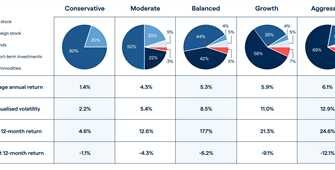
Writing contemporary fiction can be a challenging but rewarding process. During the last few years, contemporary fiction has seen a surge in popularity among readers of all ages. Many people believe that contemporary fiction captures the essence of our time and reflects the struggles, joys, and pains that our generation experience on a daily basis.
One of the first steps to becoming a successful contemporary fiction writer is to immerse yourself in the genre. Read books by contemporary authors and analyze their writing style, themes, and character development. Determine what makes their works stand out and grab the attention of readers. You may also want to meet and connect with other writers in the contemporary fiction community to exchange ideas and insights.
When writing contemporary fiction, it’s important to keep in mind that your characters and their stories should feel authentic and relatable. Contemporary readers want to see themselves and their own experiences reflected in the pages of a novel. Whether it’s about the pains of finding love, the struggles of a young professional, or the challenges of navigating modern technology, your characters should embody the thoughts and emotions of your readers.
Another key aspect of contemporary fiction is its ability to address serious social issues. While contemporary fiction can be entertaining and light-hearted, it also has the power to delve into deeper topics that affect our society. Whether it’s racism, mental health, or environmental issues, contemporary fiction can provide a platform for exploration and discussion.
While there are no strict rules when it comes to writing contemporary fiction, there are a few habits that many successful contemporary writers have in common. Many writers spend years honing their craft, continuously reading and analyzing works of other authors. They also have a deep understanding of their target audience and what they want to read. This means constantly staying up-to-date on current trends and cultural references.
Some writers like to outline their novels meticulously, plotting out every detail before they start writing. Others prefer to be “pantsers,” allowing the story to unfold organically as they write. There’s no right or wrong approach, as long as it works for you. The key is to find a writing process that allows you to stay focused and productive.
Writing contemporary fiction can be exhausting at times, but the satisfaction of creating something that resonates with readers is worth every moment of doubt and struggle. If you keep writing, keep reading, and keep challenging yourself to delve deeper into the human experience, you’ll become a better contemporary fiction writer with every word you put on the page.
On the Pain of Reading Contemporary Writing When You Are a Contemporary Writer
Reading contemporary writing can be a painful experience, especially when you are a contemporary writer yourself. The ongoing struggle to find a unique voice and create compelling stories becomes all too evident when you read the work of others. It can be both inspiring and disheartening to see what others have accomplished in their writing.
As a writer, you are constantly looking for new sources of inspiration. Whether it’s from your own experiences, books, or the world around you, finding ways to push your writing to new heights is an ongoing process. However, when you read contemporary fiction, you may find yourself questioning your own abilities and wondering if you can ever achieve the same level of success.
One of the most important things to remember is that every writer has their own journey. Just because someone else has become a successful novelist doesn’t mean that you won’t also find your own path to success. It’s essential to believe in yourself and trust that your unique perspective and voice will resonate with readers.
When you read contemporary writing, it can be easy to get caught up in comparing your work to others. However, it’s important to remember that there is no one right way to write. Some writers may meticulously outline every detail of their story, while others prefer to write by the seat of their pants, known as “pantsers.” Both approaches have their merits, and it’s up to you to find the method that works best for you.
Reading contemporary fiction can also be exhausting. As a writer, you know the amount of time and effort that goes into crafting a story. When you read someone else’s work, you can’t help but wonder how many hours they spent writing and revising. It’s a reminder that becoming a successful writer takes time and dedication.
As a reader, you play an important role in the writing community. Your feedback and support can help shape and encourage writers to keep going. When you read contemporary writing, remember that while you may feel pain and self-doubt, there are other writers out there who have felt the same way. It’s all part of the process.
If you’re a bibliophile like me, reading contemporary fiction is a necessary step in the ongoing journey of becoming a better writer. While it may be painful at times, it’s also an opportunity to learn from the successes and failures of others. The pain of reading contemporary writing as a contemporary writer means that you are challenging yourself and pushing yourself to grow.
So, embrace the pain, suspend your disbelief, and keep reading. The pain will only make you a stronger, more empathetic writer in the long run.
Video Professor and novelist Valerie Sayers on writing and contemporary fiction
When it comes to writing contemporary fiction, Valerie Sayers, a renowned novelist and professor, believes that thinking precisely, like a Video Professor, is key. Contemporary fiction flexes both the writer’s creative muscles and their ability to keep readers engaged. Sayers knows this torture all too well.
“Every writer, when they sit down to write, has to believe they’re the best writer in their own mind,” Sayers explains. “That’s what keeps them going through the pain and the doubt.”
Whether you’re a seasoned writer or have just begun your journey into the world of contemporary fiction, it is important to have faith in your abilities. Sayers confirms that it is normal to have doubts, but also emphasizes the importance of reading the works of others to fuel your own creativity.
“You have to read the best to be the best. It’s a simple concept, but one that is often overlooked,” she says.
For Sayers, writing contemporary fiction is like having a conversation with someone you love. It is a constant push and pull between yourself and the story, creating a dynamic relationship that fuels the writing process.
“Writing contemporary fiction is a serious business. It really works your brain and your writing muscles, but it’s also having fun with it, feeling the passion and the pains,” Sayers explains.
While writing can be exhausting, Sayers suggests finding joy in the process. She believes that above all, having a strong love for storytelling is what determines a successful contemporary fiction writer.
“You have to love the writing itself. The craft, the art, the joy of creating something from nothing. That’s what separates the good from the great,” she says.
Sayers also addresses the divide between generations of writers, suggesting that it doesn’t matter whether you’re a young, inexperienced writer or a seasoned veteran, as long as you have the passion and drive.
“There’s this sort of marmoreal disbelief that you’re going to feel pains or you’re going to have a reason not to write,” Sayers explains. “But truly, it’s just a matter of committing to yourself and your craft.”
Whether you’re a Video Professor or a novelist, Valerie Sayers offers valuable insights into the world of contemporary fiction writing. So, go ahead and pick up a book, immerse yourself in the works of others, and let your own stories come to life.
Step 2 Determine whether you’re an Outliner or a Pantser

When it comes to writing contemporary fiction, one of the first things you’ll need to figure out is whether you’re an Outliner or a Pantser. Outliners are those writers who meticulously plan out every detail of their story before they begin writing. They create extensive outlines, character profiles, and plot structures to guide their writing process.
Pantsers, on the other hand, like to fly by the seat of their pants. They don’t plan out their story beforehand and instead prefer to let the writing process unfold organically. Pantser is a term used to describe writers who write “by the seat of their pants.”
So, what does this mean for you as a writer? Well, determining whether you’re an Outliner or a Pantser can greatly impact your writing style and the way you approach your story. It’s important to find a method that works best for you.
If you’re an Outliner, you may feel more at ease having a structured plan in place before you begin writing. This can help you stay on track and ensure that your story has a clear direction. Some writers find comfort in knowing the beginning, middle, and end of their story before they even write the first line.
On the other hand, if you’re a Pantser, you thrive on the spontaneity and unpredictability of the writing process. You enjoy the freedom of discovery and allowing the story to unfold naturally. Pantser writers often find that their writing feels more alive and vibrant because of this approach.
Both approaches have their merits, and it’s best to find a balance that works for you and your writing style. Some writers may be a mix of both, having a general idea of where the story is going but allowing for flexibility and creativity along the way.
Valerie, a confirmed Pantser and accomplished contemporary fiction writer, spent years exploring her writing habits before finding what worked best for her. She confirms the divide between Outliners and Pantsers and believes that having an ongoing dialogue with your mind is key to finding your writing style.
Whether you’re an Outliner or a Pantser, it’s important to keep in mind that writing is an ongoing process. What works for you today may not work tomorrow, and that’s okay. The best writers are those who are open to new ideas and willing to adapt their writing process as needed.
So, take some time to reflect on your writing habits and determine whether you’re an Outliner, a Pantser, or somewhere in between. There’s no right or wrong answer, as long as you find a method that allows you to write freely and express your unique voice as a writer.
Источники
When it comes to writing contemporary fiction, there are numerous sources you can turn to for inspiration and guidance. Whether you’re a pantser or an outliner, there’s something out there for everyone.
If you’re not sure where to start, one of the best ways to improve your writing skills is to read. Spend some time reading the works of contemporary novelists, both within your genre and outside of it. Pay attention to how they meet the reader’s expectations and make them feel connected to the characters. Take note of the techniques they use to create suspense and disbelief, and how they suspend the reader’s disbelief to keep them engaged in the story.
Another great way to learn about contemporary fiction is to join writing communities and attend workshops or video conferences. Surround yourself with other writers who are serious about their craft and willing to share their knowledge and experiences. This can provide you with a support system and valuable feedback on your work.
While it’s important to keep in mind that every writer has their own unique process, it can be helpful to learn about the habits and techniques that have worked for others. There are plenty of books and online resources available that can give you insights into the writing process and help you develop good writing habits.
Lastly, don’t forget to listen to your own instincts and trust your judgment. Ultimately, you’re the one who knows what works best for you. If something doesn’t feel right or you’re not happy with the direction your writing is taking, don’t be afraid to make changes.
Writing contemporary fiction can be a challenging and sometimes exhausting endeavor, but with the right sources and a dedication to honing your skills, you can create stories that resonate with readers and stand the test of time.










